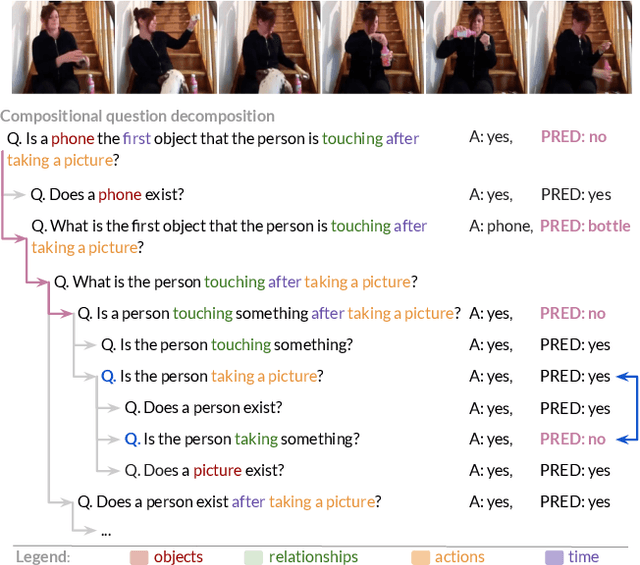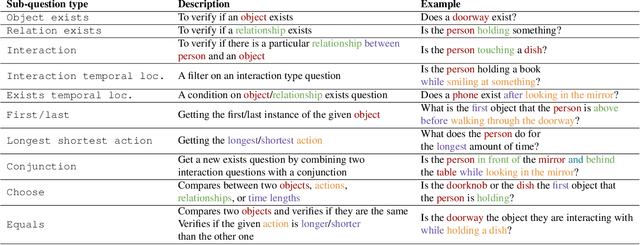Measuring Compositional Consistency for Video Question Answering
Paper and Code
Apr 14, 2022



Recent video question answering benchmarks indicate that state-of-the-art models struggle to answer compositional questions. However, it remains unclear which types of compositional reasoning cause models to mispredict. Furthermore, it is difficult to discern whether models arrive at answers using compositional reasoning or by leveraging data biases. In this paper, we develop a question decomposition engine that programmatically deconstructs a compositional question into a directed acyclic graph of sub-questions. The graph is designed such that each parent question is a composition of its children. We present AGQA-Decomp, a benchmark containing $2.3M$ question graphs, with an average of $11.49$ sub-questions per graph, and $4.55M$ total new sub-questions. Using question graphs, we evaluate three state-of-the-art models with a suite of novel compositional consistency metrics. We find that models either cannot reason correctly through most compositions or are reliant on incorrect reasoning to reach answers, frequently contradicting themselves or achieving high accuracies when failing at intermediate reasoning steps.
 Add to Chrome
Add to Chrome Add to Firefox
Add to Firefox Add to Edge
Add to Edge